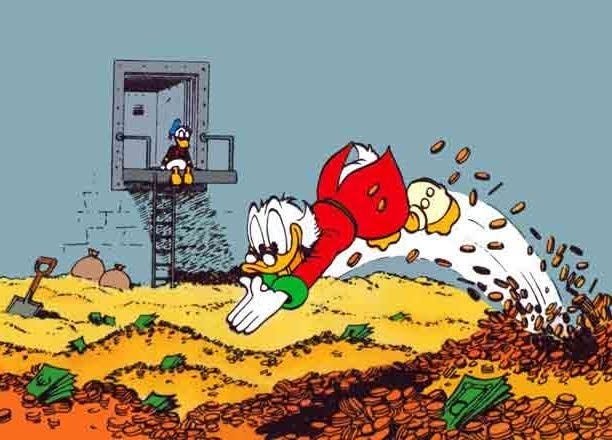Disclaimer: This post is a bit meandery. Please forgive any loose ends.
Would you be happier if you were richer?
The answer to that question is: probably, to a point. Previous studies have found that as people make more money, they do become happier. However, this happiness boost from money fades off at about $75,000/year.
Or it did. I’m sure that number would be higher now if studied again given inflation. But even back then that number was by no means a complete picture. $75,000/year means vastly different things depending on where you live.
If you lived in NYC or LA on $75,000 you were below the poverty line. You were comfortably middle class in a small to mid-sized city in the South East on that same salary.
So it’s not an absolute dollar amount that matters. But what does?
Choice and control. How dependent are you on other people and how much agency do you have over your time?
For me personally, the most unhappy I’ve ever been is when I’ve felt stuck. I’m a fairly stoic, content person. But I’ve worked at desk jobs I didn’t like and felt I couldn’t leave which gave me chest pain and anxiety. And they were pretty cushy jobs. Not hard, I didn’t have a bad boss, co-workers were fine, made decent money. I just felt stuck, not in control, like I didn’t have a choice.
Achieving a certain amount of money or cash flow can give you that control over your life. You don’t have to work at something or for someone you dislike just because you need it. You can pursue purpose-filled work only you could do.
However, that’s only true if you have enough at the end of the month to give you more choice and control. This is why “absolute income” is not a complete picture. The cost of living is higher in certain parts of the country and lower in others, so the same amount of money doesn’t buy you the same choice and control.
The irony and danger of money is buying more stuff that adds drag to your life, not freedom. And every new thing can unnecessarily reduce what stays in your bank account. Even more insidious, every new thing you buy and add to your life creates a tiny fractional complexity. It is one more thing you need to clean/organize/consider/maintain. It takes physical care and takes up mental bandwidth. But as these things add up and accumulate over time, they turn into a complex life that distracts from what you could do with your life. Now you’re spending hours as a caretaker of your own estate instead of time that could be spent as an active agent in the world.
Additionally, if you aren’t “there” yet in terms of choice and control, a focus on purchasing things can keep you stuck where you are longer. Or indefinitely.
Similarly, if, as you earn money, you spend more money at a similar rate, you really aren’t advancing yourself in any way. The more you have stuff that requires a certain income level, the more chained you are to that income level. A “rich” person with a mansion that is at the top end of their means can ironically be in just a dead-end stressful position as a Mcdonald’s worker. Neither feels like they have a choice to leave. This is basically the premise of the book “Rich Dad Poor Dad.”
In so far as money can earn you choice and control, I think it can buy happiness. But beware of the dark side of building yourself a new prison of things and lifestyle.
The main litmus test for all of this is: how much of your time do you own? Our only non-renewable resource in this world is time. What does it matter if you make a lot of money but work an 80-hour week most of the year? Or… a 40-hour week? That might hit a little harder.
Don’t get me wrong. I’m not anti-work. On the contrary, if you read my last post, I’m very pro-work. Hard work with long hours. But work on your terms building something towards your big thing in this world.
My wife and I left everything behind and left on a 6-month road trip, living all over the US (mostly out west). This is still an experiment for us, and I hope to learn a lot, but so far not having much “stuff” hasn’t impacted my life or happiness. It’s put the things that actually matter to me in focus. And we can do this because we’ve focused on earning our time back, and we can spend it working on what we want, where we want, when we want.
If you like this kind of thinking subscribe below.


